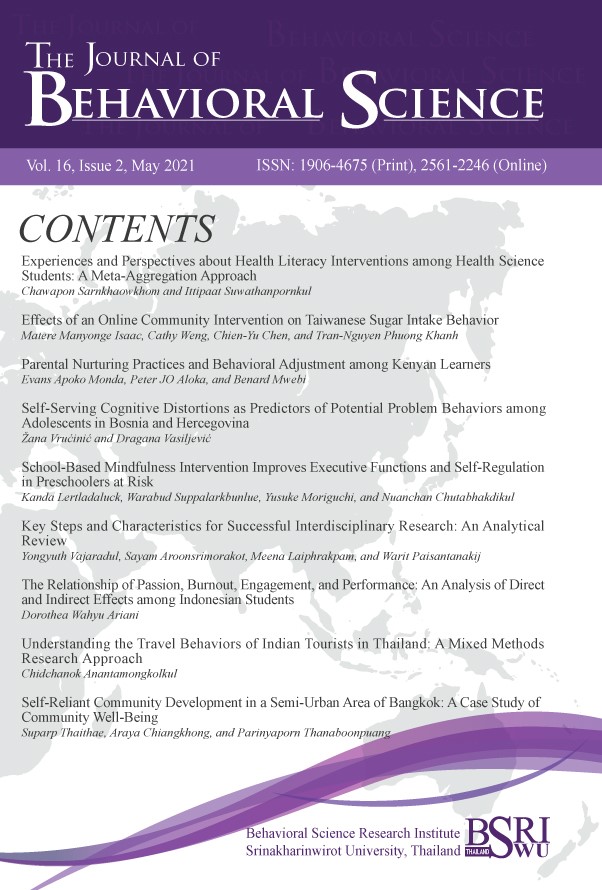Effects of an Online Community Intervention on Taiwanese Sugar Intake Behavior
Main Article Content
Abstract
Sugar intake has increasingly been a threat because of its association with chronic diseases such as diabetes. During the ongoing Covid-19 pandemic, people have stayed indoors with minimal activities, leading to unhealthy eating habits and weight gain. However, through health-promotion education, these threats could be managed. This study focused on an online heath nutrition program for sugar reduction, with an aim of developing an online training program for reducing sugar intake. Data were collected from 100 participants belonging to a Facebook community in Taiwan. They performed activities guided by research’s daily lesson plans for a maximum of 10 minutes per day for three weeks. Online questionnaires were used for the pretest and posttest. Findings revealed significant differences in health knowledge (t(99) = -8.27, p < .001), attitude (t(99) = -8.98, p < .001), self-efficacy (t(99) = -10.14, p < .001), and perceived healthy behavior (t(99) = -12.40, p < .001), with their posttest scores being higher than their pretest scores. These findings imply that online training on Facebook is an effective educational tool during the Covid-19 pandemic. Therefore, this study contributes to behavioral science knowledge by revealing Facebook as a facilitating and training platform for promoting healthy behavior, and access to information on reduction of sugar intake during pandemic. Furthermore, these findings could be used as empirical evidence of the possibility of implementing online nutrition programs for the teaching and training of online communities.


